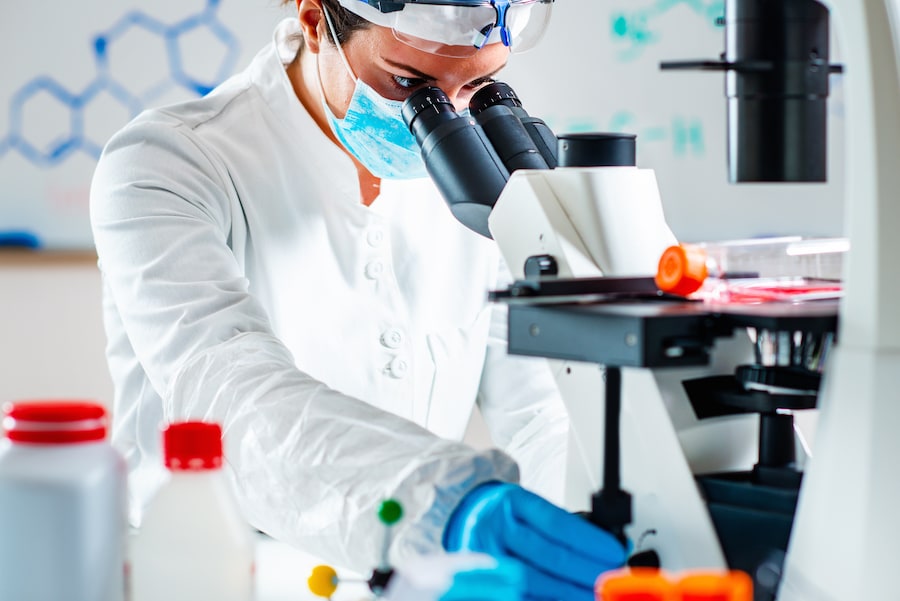The growing field of biotechnology – improving lives through science
The biotechnology field is far-reaching and ripe with opportunity. Built on a solid foundation of biology and chemistry, this innovative bachelor's degree program combines the study of applied molecular and cellular biology.
Students will master a broad range of lab skills applicable to biology and biotechnology, including applied research skills at an advanced level that will prepare them for a career or graduate studies. Southern’s biotech program offers in-demand courses such as bioinformatics and genomics. The degree also is an excellent choice for pre-med students.
Possible careers include research scientist, beer and winemaker, pharmacologist, biostatistician, biotechnologist, forensic scientist, dentist, grant writer, marine biologist, patent attorney, high school teacher, museum curator, pharmacist, science policy expert, science writer/editor, veterinarian, zookeeper, and many more.
Program Features
- Students generate hypotheses, design approaches to test them, and interpret the data from those tests to reach valid conclusions.
- Students develop oral and written communication skills relevant to professional positions in the biotechnology workforce.
- The program includes a number of course-embedded authentic research experiences, and research experience for undergraduates (REU’s) in regional biotechnology companies is competitively available.
This program requires more chemistry and math than the B.S. and B.A. biology programs. Beyond the first year, the required biology courses are all molecular and cellular biology focused. Students earn a minor in chemistry with this degree, and have a required research internship experience. Accreditation by the American Society for Biochemistry and Molecular Biology is being pursued for this program.
Hands-On Research Projects
As part of the major, students participate in two innovative national educational programs:
- HHMI SEA-PHAGES (Science Education Alliance-Phage Hunters Advancing Genomics and Evolutionary Science): This program starts with simple digging in the soil to find new viruses and progresses through a variety of microbiology techniques to complex genome annotation and bioinformatic analyses. The two-semester course is embedded in Genomics I and II.
- Tiny Earth program: Students roll up their sleeves and get digging again — this time for antibiotic-producing bacteria. SWI seeks to address the problem of antibiotic-resistant “superbugs” or bacteria, by having students isolate soil microorganisms that may produce new antimicrobial products.

Internships and Career Opportunities
According to the Smithsonian Science Education Center (SSEC), STEM (science, technology, engineering, and math) occupations out-earn non-STEM fields by 12 to 30 percent across all education levels, and STEM jobs have doubled as a proportion of all jobs.
Our goal is to prepare students for employment opportunities in the critically important and dynamic biotechnology industry. Biotech students participate in a required internship at a local company such as Alexion, Isoplexis, Quantum BioPower, The Jackson Laboratory, Synovel Laboratory, Archillion, and more.
Upon graduation, students are equipped to pursue a career as a research associate in biotechnology or biopharma or to launch a career in life sciences. They may also enroll in graduate programs (M.S. or Ph.D.) in biotechnology or related fields such as molecular biology, microbiology, genetics, and biochemistry. Some biotechnology B.S. graduates pursue advanced professional degrees such as an M.D. (medicine), M.B.A. (business), or J.D. (law), with an emphasis on biotechnology issues.
Program Requirements
Visit the undergraduate catalog for program requirements and further information.
Contact Us
Dr. Nicholas Edgington
Biotechnology Program Coordinator
Department of Biology
Academic Science and Laboratory Building 311E
EdgingtonN1@SouthernCT.edu

